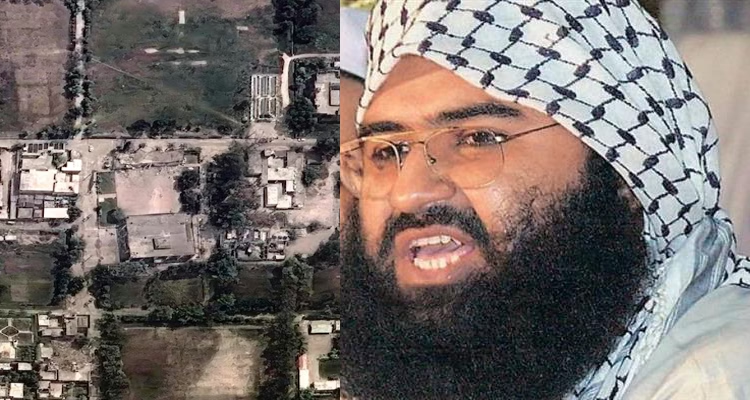
New Desk:
In the wake of Indian airstrikes targeting terror camps in Pakistan and Pakistan-occupied Kashmir (PoK) under Operation Sindoor, the Pakistani government has announced plans to rebuild the Muridke area, home to the banned terror outfit Lashkar-e-Taiba’s (LeT) headquarters.
The Indian Armed Forces launched a series of precision strikes around midnight on May 6, with one of the primary targets being Markaz-e-Taiba, the fortified 82-acre LeT complex located in Nangal Sahdan, Sheikhupura district, Punjab province. The facility, widely recognized as the operational nerve centre of LeT and its parent organisation Markaz Dawa Wal Irshad (MDI), includes combat training zones, residential quarters, mosques, schools, and medical facilities.
Following the strike, senior Pakistani officials — Federal Minister for Industries and Production Rana Tanveer Hussain and Punjab Housing Minister Bilal Yasin — visited those injured in Muridke on May 13, according to Pakistan’s The News International. During the visit, Minister Hussain announced that the Pakistani government will rebuild the damaged area, including a mosque reportedly hit during the operation. He stated that Prime Minister Shehbaz Sharif and Army Chief General Asim Munir have pledged to fund the mosque’s reconstruction from their personal resources.
“The care of the children of martyrs is the government’s responsibility, and we will fulfil this duty,” Prime Minister Sharif was quoted as saying. He also confirmed that the federal government will bear all treatment expenses for the injured and will rebuild homes and mosques affected by the strikes.
Compensation Raises Eyebrows
The Pakistani government has announced compensation packages ranging from Rs 3.02 crore to Rs 5.4 crore for security personnel killed during the Indian strikes, depending on their ranks. Injured individuals are expected to receive Rs 3 to Rs 6 lakh.
However, significant controversy has arisen over reports that the UN-designated terrorist Masood Azhar, the chief of Jaish-e-Mohammed (JeM), may be awarded Rs 14 crore in compensation following the reported deaths of 14 of his family members in the Indian airstrikes. According to The Tribune India, each deceased is to receive Rs 1 crore, and Azhar, if legally acknowledged as their heir, could receive the full amount.
India’s intelligence community has criticized the move, viewing it as further evidence of state complicity in sheltering and supporting proscribed terror figures.
Background: Muridke and the Lashkar Nexus
The Markaz-e-Taiba complex has long been at the centre of global counterterrorism concerns. It is not only the ideological headquarters of LeT, founded by Hafiz Saeed, but has also been instrumental in training operatives involved in several high-profile terrorist attacks, including the 2008 Mumbai attacks. Notorious figures such as Ajmal Kasab, David Headley, and Tahawwur Rana are all known to have trained or visited the facility.
According to intelligence sources, Al-Qaeda leader Osama bin Laden had previously financed parts of the complex, including the construction of a mosque and guesthouse. A senior Indian counterterrorism official described the centre as “a self-contained city, as organized as a military base—clearly pointing to state backing.”
Operation Sindoor: India’s Response to Pahalgam Massacre
The strikes on Muridke and eight other terror hubs — including the Bahawalpur base of JeM — were part of India’s Operation Sindoor, launched in retaliation for the April 22 Pahalgam attack that killed 26 civilians in Jammu and Kashmir. The attack was claimed by The Resistance Front (TRF), an LeT proxy group.
Indian officials maintain that the operation specifically targeted terrorist infrastructure and avoided civilian casualties. Intelligence assessments suggest that over 100 terrorists were neutralized in the precision strikes.
A senior Indian defense official said, “Muridke has been exporting terror not only to Kashmir but across the world. It is the root of this evil, and dismantling it was a long-overdue step.”




